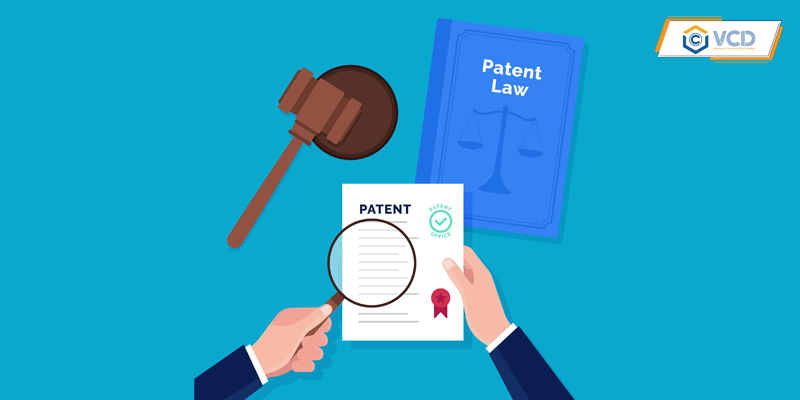Can a copyright lawsuit be filed without registering copyright?
The issue of copyright protection is attracting a lot of attention today. Many authors and copyright owners often ask whether they have the right to sue when they have not registered copyright for their work? The following article by VCD will help you.
1. Subjects initiating civil lawsuits on copyright and related rights
Pursuant to Article 56 of Decree 17/2023/ND-CP and Joint Circular 02/2008/TTLT-TANDTC-VKSNDTC-BVHTT&DL-BKH&CN-BTP regulating the right to initiate civil lawsuits on copyright and related rights. Accordingly, subjects with the right to initiate lawsuits include:
First: Authors; owners of copyright and related rights; legal heirs of authors or owners of copyright and related rights; Individuals and organizations to whom the rights of copyright and related rights are transferred; individuals and organizations using works under contracts; performers; producers of sound and video recordings; broadcasting organizations;
Second: Collective representative organizations of copyright and related rights or other organizations and individuals authorized by copyright and related rights owners.
Third: State agencies and related organizations, within the scope of their duties and powers, have the right to initiate civil lawsuits to protect public interests and State interests in the field of copyright and related rights.

2. Can a lawsuit be initiated without registering copyright?
According to the Intellectual Property Law on copyright and related rights, copyright arises as soon as a work is created and expressed in a certain material form, regardless of content, quality, form, means, language, whether published or not, registered or not. Therefore, when copyright is infringed, the author or owner has the right to sue when the copyright of the work has not been registered. However, proving that he is the owner will be difficult.
Because when the plaintiff initiates a lawsuit over copyright disputes, the plaintiff/plaintiff must first prove that he is the owner of the work. If he cannot prove it or the evidence is not accepted by the Court, it is considered that the plaintiff has failed in the case of protecting copyright and related rights.
According to the provisions of Clause 2, Article 203 of the current Law on Intellectual Property, the evidence for the plaintiff to prove that he/she is the owner of copyright includes:
- A copy of the certificate of registration of copyright and related rights.
- Evidence necessary to prove the basis for the arising of copyright and related rights in cases where there is no certificate of registration of copyright.
- A copy of the contract for using the intellectual property object in cases where the right to use is transferred under a contract.
In addition, according to the provisions of Clause 3, Article 49 of the Law on Intellectual Property, organizations and individuals that have been granted a certificate of registration of copyright and related rights are not obliged to prove that the copyright and related rights belong to them unless there is a dispute, except in cases where there is evidence to the contrary.
Furthermore, according to the provisions of Point b, Clause 1, Article 92 of the 2015 Civil Procedure Code, the circumstances and events identified in the Certificate of registration of copyright and related rights are circumstances and events that do not need to be proven as information about the owner of the work, the author of the work, etc.
In case there is no Certificate of registration of copyright or Certificate of registration of related rights, according to the provisions of Clauses 1 and 2, Article 6, Article 12a, Article 13, Article 37, Article 38, Article 39, Article 40, Article 41, Article 42, Article 198a of the current Law on Intellectual Property; Article 59, Clause 3, Article 65 of Decree 17/2023, the necessary evidence to prove the basis for the arising of copyright and related rights may be:
- Original or copy of the work with the name of the right holder.
- Documents proving that you are the direct creator of the work.
- Documents from a computer database recording the process of creating the work.
- Documents assigning work to the author or contracts hiring the author.
- Contracts of assignment, donation, or documents related to the publication and distribution of the work.
However, according to the provisions of Articles 94 and 108 of the 2015 Civil Procedure Code, the above documents are only considered sources of evidence and must be assessed by the Court for the legality, relevance, and evidentiary value of each of these documents when resolving disputes; and therefore, these documents can be accepted as evidence to prove that the plaintiff is the subject of copyright and related rights in the dispute.
Based on the above, it can be seen that the Copyright Certificate is not a mandatory document for filing a lawsuit. However, the author and copyright owner should register the copyright to protect the copyright, especially in proving the copyright when a dispute occurs.
Above is the article “ Can a copyright lawsuit be filed without registering copyright?” that VCD sent to you. We hope this article is useful to you.
Sincerely,
